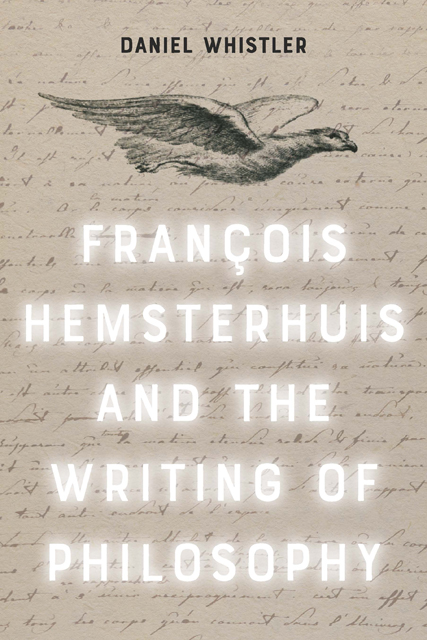Conclusion: Four Characters in Search of a Philosophy
Published online by Cambridge University Press: 03 June 2023
Summary
Much of this book has been dedicated to enumerating the various stylistic techniques deployed by Hemsterhuis in the wake of his poetic turn, as well as supplying some of his reasons for using them. There are many different ways such a list could be arranged. In this book, I have grouped these writing techniques and their justifications into three distinct, if interrelated studies of Hemsterhuis’ post-1775 style. The first turned on his Platonism – that is, Hemsterhuis considers himself to be emulating Plato in his recourse to dialogue, the sublime and the sentimental, as well as in writing in a way that partakes of both analysis and poetry at the same time. The second study focused on Hemsterhuis’ organology (a project that intervened in contemporaneous debates over perfectibility, fibre theory and the historicity of nature) as the ground for his late style, that is, for a style which is structured by analogic predication, which thematises plasticity and which uses the mythic and the figural to situate the reader in a revolutionary ‘organic’ history. The third study then interpreted Hemsterhuis’ writing techniques through the lens of ‘time-images’. It read the dialogues as a series of attempts to make temporality directly perceptible through irony, anachronism, genealogy, philosophical worlds, energetic language and a style of hope. I suggested that each of these devices exhibits a different configuration of the past, present and future in response to the twin orienting demands to become untimely and to write plastically.
1. Other taxonomies of Hemsterhuis’ poetic turn are possible. For example, one might categorise it according to publications, since each of the four dialogues – Sophyle, Aristée, Simon and Alexis – exhibits these various stylistic devices in different combinations and for different ends. Sophyle contains less of the complex ironies of the later dialogues and, instead, is written in a way to foreground the popular and pedagogical functions of the dialogue form: it renders its philosophical arguments as accessible as possible to the reader. Much like the Meno, the dialogue invokes a Socratic philosophy of good sense innate within everyone. Aristée, on the contrary, begins with a moment of obfuscation – a preface that constructs an elaborate fictional world, which is mirrored in Diocles’ later invocation of the category of sentimental certainty and a mythic mode for communicating such a feeling.
- Type
- Chapter
- Information
- Francois Hemsterhuis and the Writing of Philosophy , pp. 265 - 269Publisher: Edinburgh University PressPrint publication year: 2022



